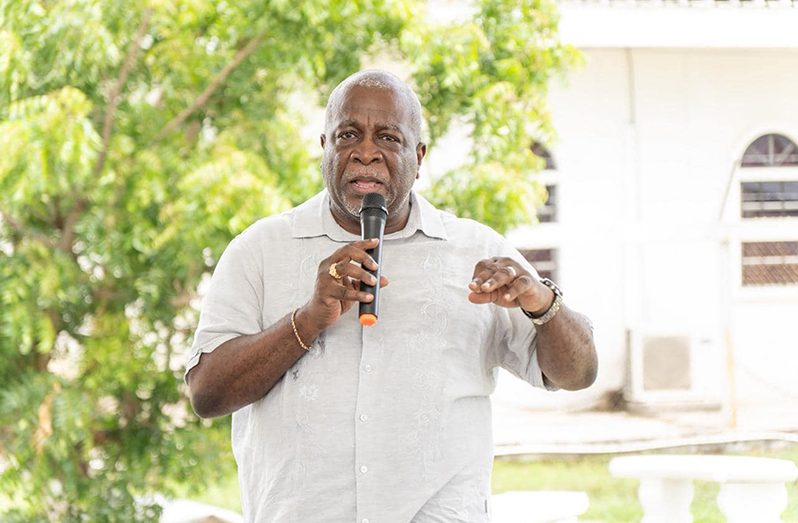–Prime Minister Phillips announces
PRIME Minister Brigadier (Ret’d) Mark Phillips over the weekend emphasised the need for continued support and investment in renewable energy to achieve a sustainable future.
The Prime Minister was at the time delivering remarks at an “EV Show and Tell” hosted by the Guyana Energy Agency at the University of Guyana Berbice Campus.
While emphasising the need to embrace renewable alternatives, he said: “The world is transitioning from non-renewable to renewable energy. Greater usage of renewable energy will lead to greater resilience against climate change and reduce the carbon footprint on the entire world and help us to be greater in terms of the resilience against the effects of climate change.”
Against this backdrop, he indicated that the government will lead by example and will soon acquire an electric vehicle fleet. He added that while six EV charging stations have already been set up including one in Berbice, there are plans for more to be put in place.
Addressing the need for continued support and investment, he highlighted the government’s efforts to promote solar technology in both urban and hinterland regions, as the government has distributed household solar systems benefitting hinterland residents.
“28,000 household solar systems have changed the lives of 120,000 people throughout our hinterland and riverine areas… it is our intention to distribute an additional 10,000 household systems,” he said.
To this end, he urged those present at the show and tell to embrace renewable solutions like solar power and electric mobility, noting that electric vehicles are environmentally friendly and cost-effective in the long term.
Prime Minster Phillips noted that clean energy is pivotal in Guyana’s energy transformation and long-term sustainability goals.
Earlier this year, he highlighted the government’s adoption of robust policies, cost-effective technologies and energy-efficient solutions. These initiatives, he said, aim to provide equitable and affordable access to clean and renewable energy.
Significant strides are being made through the Low Carbon Development Strategy (LCDS) 2030 which focuses on the use of innovative clean energy solutions using natural resources.
As part of the broader strategy, plans are in place to expand renewable energy capacity, specifically solar PV, hydropower and wind. This energy mix which the government is pursuing, he noted, will result in more than 500 megawatts of capacity over the next five years.




.jpg)









